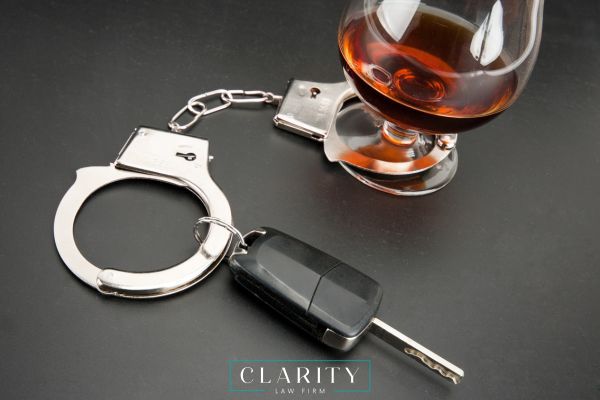In Michigan, being arrested for driving under the influence (DUI), legally referred to as Operating While Intoxicated (OWI), can lead to the suspension or revocation of your driver's license. For a first-time OWI offense with a Blood Alcohol Content (BAC) below the legal limit of 0.17%, the state mandates a six-month license suspension, with the possibility of restricted driving privileges after 30 days. If your BAC is 0.17% or higher, often termed a "High BAC" or "Super Drunk" offense, the penalties are more severe, including a one-year license suspension. In such cases, you may be eligible for restricted driving privileges after 45 days, provided an ignition interlock device is installed in your vehicle.
Navigating the complexities of Michigan's OWI laws and the associated impact on your driving privileges can be challenging. It's crucial to understand your rights and the legal processes involved to work toward reinstating your license. Consulting with an experienced DUI defense attorney in Dearborn can provide you with the guidance necessary to navigate these legal challenges effectively. Call Clarity Law at (313) 513-1919 to schedule a free consultation and discuss your case.
License Penalties for Michigan OWI Offenses
Michigan imposes strict penalties for intoxicated driving offenses, including license suspensions, revocations, and other lasting consequences based on prior offenses and blood alcohol concentration levels.
- First Offense (BAC Below 0.17%): A first-time OWI with a BAC below 0.17% results in a 30-day license suspension, followed by 150 days of restricted driving. Drivers will also receive six points on their driving record and must pay a Driver Responsibility Fee of $1,000 annually for two years.
- First Offense (High BAC – 0.17% or Higher): For drivers with a high BAC, the penalties are more severe. The license suspension period increases to 45 days with no driving allowed, followed by 320 days of restricted driving with an ignition interlock device. The offense also results in six points on the driving record and the same $1,000 annual Driver Responsibility Fee for two years.
- Second Offense (Within 7 Years): A second OWI within seven years leads to a minimum one-year license revocation. The driver can request reinstatement after the revocation period, but reinstatement is not automatic. Six points are added to the driving record, and the driver must again pay the $1,000 annual fee for two years.
- 3rd Offense: A third OWI conviction results in a much harsher penalty, including a minimum five-year license revocation. As with a second offense, drivers must apply for reinstatement after the revocation period. This offense also carries six points on the driving record and the $1,000 annual Driver Responsibility Fee for two years.
Additionally, repeat offenders may face license plate confiscation as part of their penalty, requiring them to obtain new plates once driving privileges are reinstated.

Michigan’s drunk driving laws are strict, and license penalties can have lasting effects. Those facing charges should consider legal options to minimize the impact on their driving privileges and criminal record.
How Refusing BAC Tests Will Affect Your License
Michigan’s Implied Consent Law requires drivers to submit to a chemical test if a police officer suspects intoxication. Refusing a breathalyzer or blood test results in automatic license penalties, separate from any OWI charges.
Refusing a chemical test carries serious legal consequences, even if you are not convicted of an OWI. A first refusal leads to a one-year license suspension, while a second refusal within seven years results in a two-year suspension. These severe penalties are administrative and enforced by the Michigan Secretary of State, regardless of the outcome of any criminal case.
Drivers who refuse a test may challenge the suspension through an administrative hearing, but the burden is on them to prove that the refusal was justified under the law.
Penalties Outside of License Suspension for a Drunk Driving Conviction
A drunk driving conviction in Michigan comes with more than just a license suspension. Depending on the offense, you may face fines, jail time, probation, and other penalties.
- Fines and Court Costs: DUI offenses carry significant financial penalties. For a first offense, fines range from $100 to $500. A second offense within seven years can lead to fines between $200 and $1,000. A third offense, classified as a felony, can result in fines of up to $5,000. Additional court costs and fees may also apply.
- Jail or Community Service: A first-time drunk driving offense in Michigan can lead to up to 93 days in jail, while a second offense may result in up to one year. A third offense carries a prison sentence of one to five years. Courts may also impose community service—up to 360 hours for a first or second offense.
- Probation and Monitoring: Judges often impose probation, which can include random drug and alcohol testing. Offenders may also be required to attend alcohol education programs, counseling, or substance abuse treatment. Probation violations can lead to additional penalties, including jail time.
- Ignition Interlock Device (IID) Requirements: For high BAC offenses (0.17% or higher) or repeat convictions, the court may require an ignition interlock device (IID). This device prevents the motor vehicle from starting unless the driver provides a sober breath sample. IID installation is often a condition of probation for repeat offenders.
- Vehicle Impoundment or Forfeiture: For a second or third DUI, the court may order the vehicle to be immobilized or even forfeited. Immobilization can last from 90 days to three years, depending on the severity of the offense.
- Increased Insurance Costs: A drunk driving conviction significantly impacts auto insurance rates. Michigan requires drivers with DUI convictions to file an SR-22, which can lead to much higher premiums for several years.
Related Content: How Much Does a DUI Lawyer Cost in Michigan?
A DUI conviction can have long-term consequences beyond these penalties, affecting employment, housing, and future legal matters. Consulting with an experienced defense attorney can help minimize the damage caused by an OWI charge and assist in working towards restoring driving privileges.
How Do I Reinstate My License After a DUI Suspension or Revocation?
The process for getting your license back after a DUI depends on whether it was suspended or revoked. A suspension has a set duration, while a revocation requires a formal hearing and proof of rehabilitation.
Reinstating a License After a Suspension
Once the suspension period ends, you must pay reinstatement fees and comply with any court-ordered requirements, such as completing an alcohol education program or community service. You may also need to provide proof of insurance before your driving privileges are fully restored.
Reinstating a License After a Revocation
A revoked license requires a hearing with the Michigan Secretary of State's Driver Assessment and Appeal Division (DAAD). You must show evidence of sobriety, such as completion of a substance abuse program, testimony from professionals or support groups, and proof that you are no longer a risk on the road. If approved, you may need to install an ignition interlock device and follow restrictions before full reinstatement is granted.
Can I Apply for a Hardship or Restricted License After a DUI
Yes, Michigan allows some drivers to apply for a hardship or restricted license after a DUI, but eligibility depends on the specifics of the case. If your license was suspended, you may qualify for a restricted license after serving a portion of the suspension. However, if your license was revoked due to multiple impaired driving offenses, you must go through a more complex reinstatement process.

For first-time offenders with a high BAC (0.17% or higher), the state requires an ignition interlock device for restricted driving privileges. Those with multiple offenses must request a hearing with the Michigan Secretary of State’s Driver Assessment and Appeal Division (DAAD) and provide proof of rehabilitation before obtaining a restricted license.
Can an Attorney Help You Keep Your License After a DUI in Michigan?
Yes, a criminal defense attorney can help you fight to keep your license after a DUI arrest. Michigan’s DUI laws include automatic license suspensions, but a lawyer may be able to challenge criminal charges or negotiate alternatives.
A criminal lawyer can represent you at administrative hearings with the Michigan Secretary of State, where they can argue for limited driving privileges or challenge a suspension. They can also examine whether law enforcement followed proper procedures during your arrest. If errors were made, such as a lack of probable cause or an improperly administered test, an experienced defense attorney may be able to get evidence suppressed, potentially avoiding a conviction and license penalties.
Get Legal Representation for a DUI
Losing your license after a Michigan DUI can make daily life difficult, affecting your ability to work and handle personal responsibilities. While some drivers may qualify for a restricted driver's license, others may face longer suspensions or even revocation, depending on their record and the severity of the offense. Understanding the steps needed to regain your driving privileges is key to moving forward.
If you're facing a drunk driving charge, acting quickly can make a difference in your case. An experienced defense attorney can help you navigate Michigan's complex OWI laws and work toward the best possible outcome. Contact the defense lawyers at Clarity Law today to discuss your options and protect your future.
